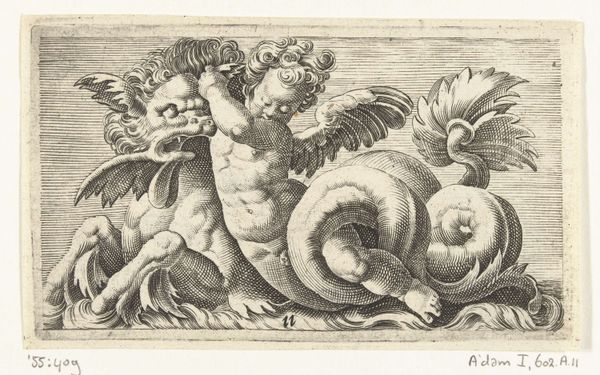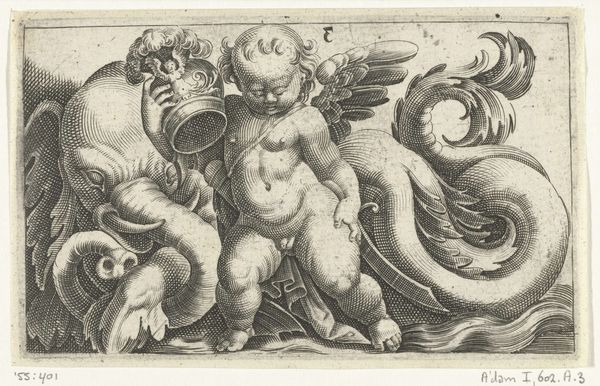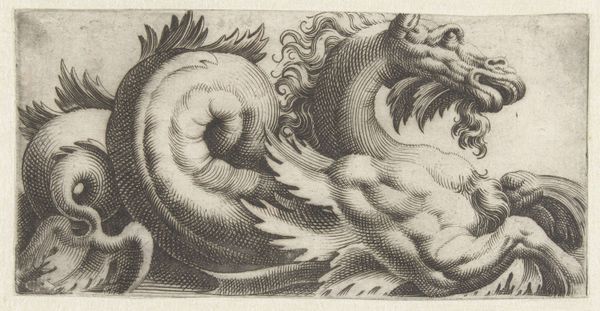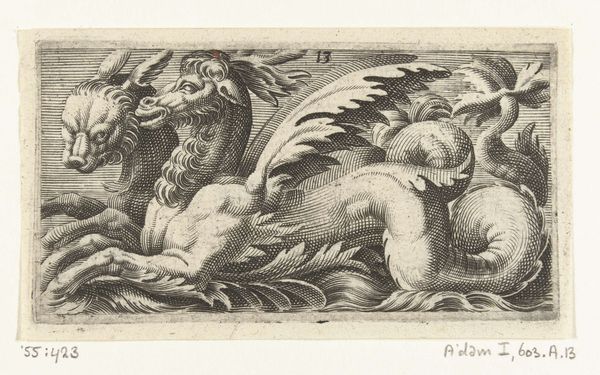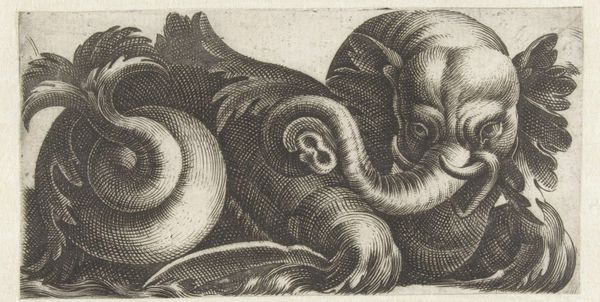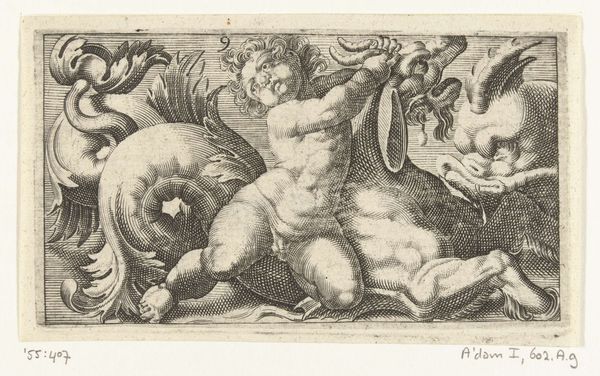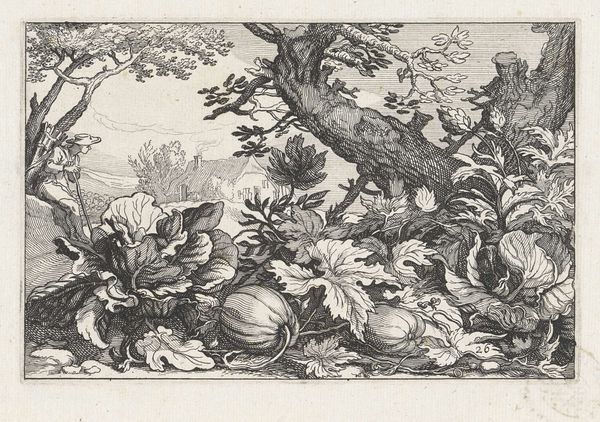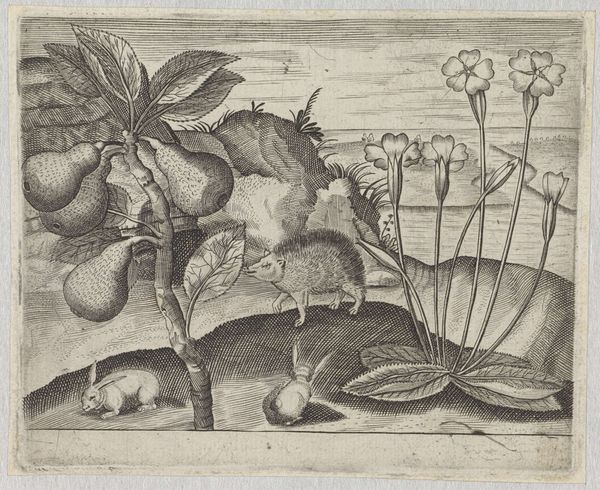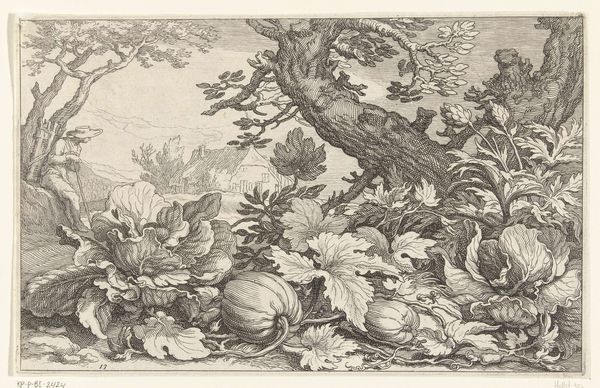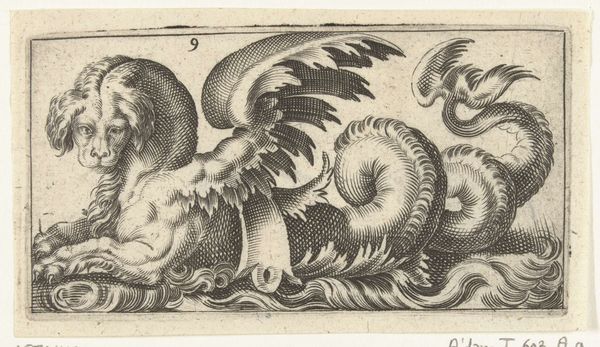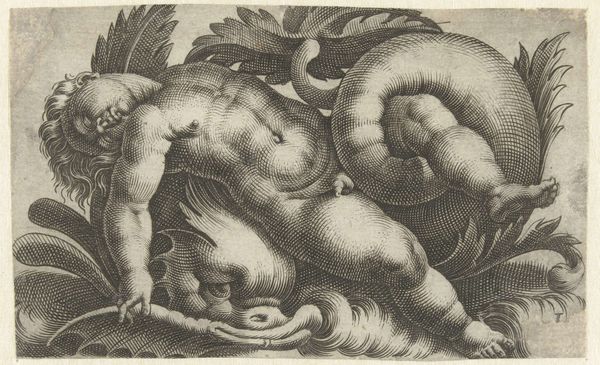
engraving
#
baroque
#
figuration
#
history-painting
#
engraving
Dimensions: height 33 mm, width 207 mm
Copyright: Rijks Museum: Open Domain
This intriguing frieze, depicting a sphinx with a fish tail on the left, was made by an anonymous artist using the graphic technique of etching. The fine, precise lines suggest the use of a sharp tool, likely a needle, to incise an image into a coated metal plate. Acid would then have bitten into the exposed lines, allowing for ink to be held and transferred onto paper. The material qualities of the metal plate and the artist's skillful manipulation of the etching process have resulted in an image with incredible detail. Consider how the process of etching, with its reliance on careful handwork and chemical reactions, reflects a time of both craft production and burgeoning scientific exploration. The very act of printing allowed for these images to be widely distributed, fueling a growing culture of visual communication, commerce, and collecting. So, next time you look at a print, think about its full meaning, and challenge the established definitions of art and craft.
Comments
No comments
Be the first to comment and join the conversation on the ultimate creative platform.


